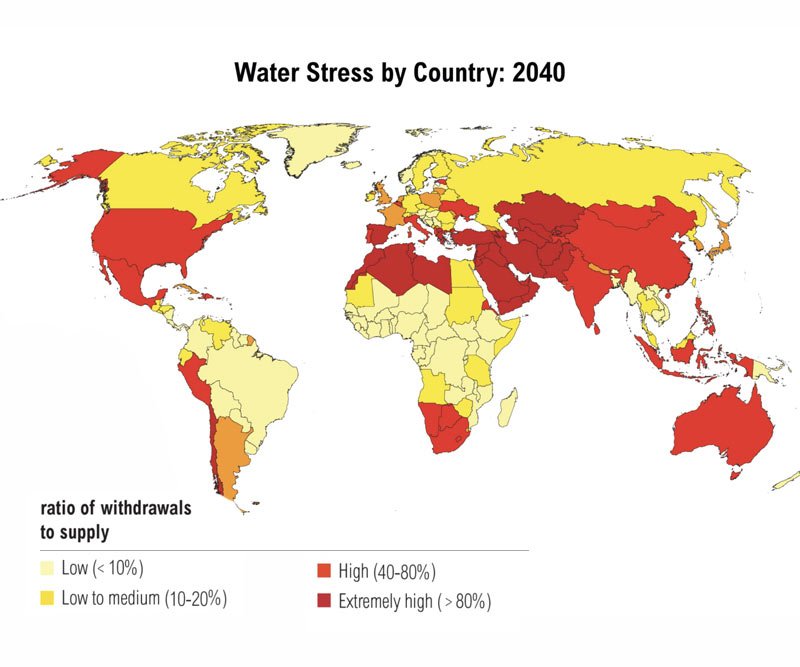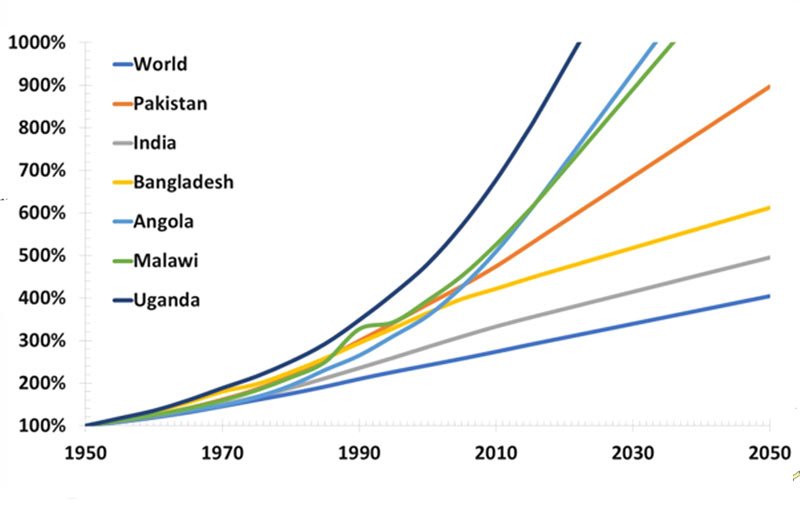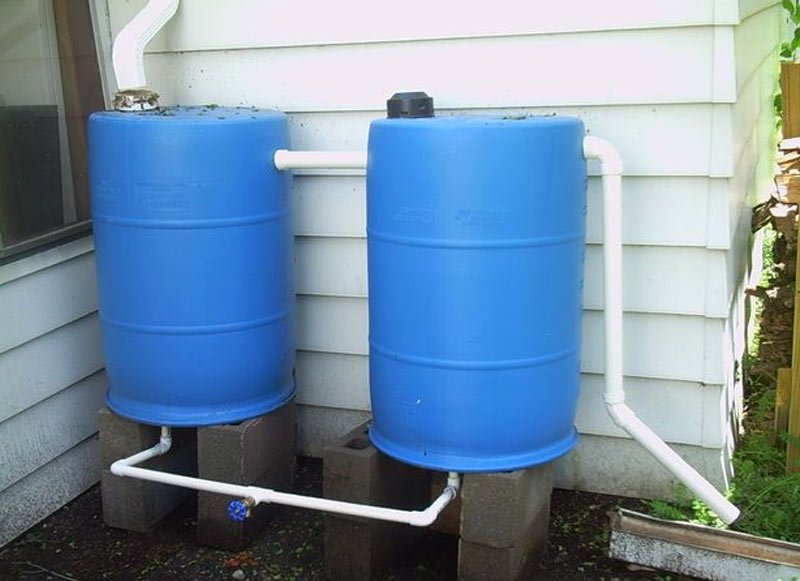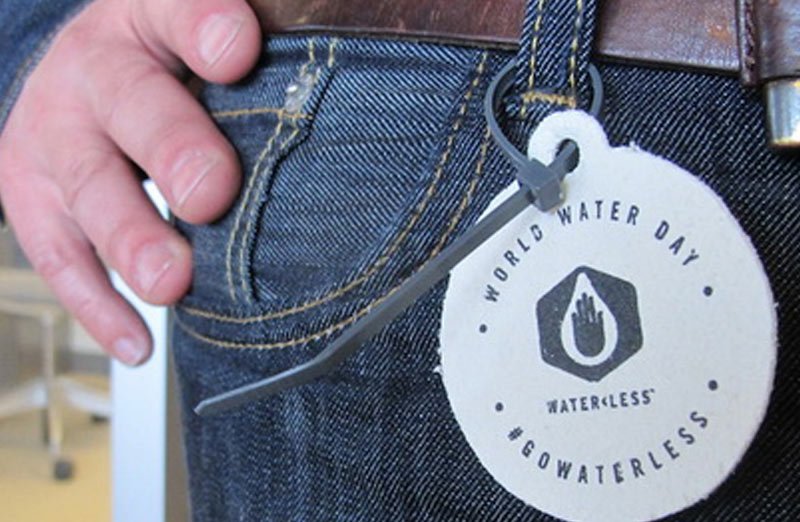Most people are rather surprised when they are told that water is a limited resource. How can it be limited when the three fourths of the earth are composed of water? Well, the fact is that despite the massive amounts of water covering the earth’s surface, clean, fresh and drinkable water is limited.
Studies reveal that only 3% of all the water available on planet earth is fit for consumption. Out of this, only 1% is available to people, the rest is locked away in glaciers and snow.
Why is it important to save water
That is why the world has started witnessing severe droughts. And that is why the limited supply of fresh water is among our most precious resources which needs to be conserved. If not saved on time, we will soon be competing and waging wars for water because the fact is that, we cannot survive without it. In its absence, many of us would get sick, our work would come to an immediate halt and millions of people can die.

Popular notion has it that water conservation just means using less water or using it efficiently. Surely, saving water means that we use our water supplies judiciously and be accountable for the way we use it. But that is not it.
Water conservation extends to protecting our water resources from being polluted and stopping excess wastewater to be created to the best of our capabilities. Today, we are facing a time when large parts of the world suffer from clean water shortage. Water conservation has become the need of the hour.
Read : 50 ways to conserve water
It is imperative so that our water remains pure and clean while protecting the environment. As every single one of us depends on water for livelihood, we must learn to safeguard it from contaminants. This in turn will protect the water for generations to come.
Facts
Saudi Arabia's groundwater will run out in the next 13 years.
Read more facts : Water conservation in Saudi Arabia
By now it is clear that water conservation is synonymous with water pollution. This is not achievable without long term strategies such as reducing wastage, preventing damaging water quality, and improving the overall water management. The global population must strive together towards the vision of saving water to that our next generations have an adequate supply of it.
Numbers emphasize the importance of water conservation:
- By 2025, an estimated 1.8 billion people will live in areas plagued by water scarcity, with two-thirds of the world’s population living in water-stressed regions.
- 780 million people live without clean drinking water.
- More than one-third of Africa’s population lacks access to safe drinking water.
- Compared to today, five times as much land is likely to be under “extreme drought” by 2050.
- There will be about 1 billion more mouths to feed worldwide by 2025 and global agriculture alone will require another 1 trillion cubic meters of water per year (equal to the annual flow of 20 Niles).
- Water demand is projected to grow by 55 percent by 2050
- About 4.5 billion people globally – already live within 50km of an “impaired” water resource – one that is running dry, or polluted.
- By 2050, 1 in 5 developing countries will face water shortages
- By the year 2040 there will not be enough water in the world to quench the thirst of the world population and keep the current energy and power solutions going if we continue doing what we are doing today.
- Half of the global population lives in countries where water tables are rapidly falling.

We are listing a few more reasons to conserve water
1. The uses of water are endless
Who can deny the fact that there is no life without water? We need it every day of our lives because its use is ingrained in every activity we perform – from drinking, bathing, cooking, washing, to a countless list of other activities. The bottom line is that we need water for activities and habits we use regularly. If we want to maintain the ecosystem, our health and general activities, then we must conserve water.
2. Without water, there is no food
It is basic childhood science. Plants need water, sunlight, soil and air to grow fruits and vegetables. If there is no water there will be no vegetation. Consider a drought for instance. The basic problem of a drought is that sustainable living becomes difficult because of a shortage or complete dearth of food. Without food and water, the population will simply starve to death.
Facts
Ten percent of homes have leaks that waste 90 gallons or more per day.
3. It protects ecosystem and habitats
It is not just the humans who need water to survive. Our whole ecological system is dependent on it. Every species, every animal, bird, plant or insect needs water for its survival. Without water, the aquatic life will cease to exist, there will be no forests and a lack of habitat for so many animals. It is highly important that we save water in order to sustain life.
4. Less water usage means more savings
Every month, we pay hefty water bills. The rates for water are not expected to go down anytime soon because in a few years, water will be an extremely rare resource. When we save water from wastage and pollution, we are not just preserving it for future generations, we are also saving on our water bill.
Also, it goes without saying that with little measures, you can save more than hundreds and thousands of water gallons every year. Use less water, and you will be charged less money from the water company.

5. Water supply is limited
Every day, the population increases and so does the level of water contamination, making the already limited amount of water much less. In order to save our future of water, we must learn to conserve whatever is left of it.
6. Conserving water is synonymous with conserving energy
When we pumping water from the central facility, it requires a high amount of energy to fuel the equipment involved. Studies reveal that in California, close to 7% of the energy consumed goes towards transferring water from the central facility to the destination facility. The bottom line here is that saving water will also lead to massive energy savings and reduce your carbon footprint. The nature will thank you for this.
7. It makes water available for recreational purposes.
If the swimming pools, spas, and golf courses are to stay, then the water needs to be conserved. But that is not it. The freshwater, which is buried deep into the ground is also responsible for beautifying our environments in silent ways like watering lawns, trees, flowers, and vegetable gardens, as well as washing cars and filling public fountains at parks. Failing to conserve water now can mean losing out on such facilities later on in life.

8. Water Conservation helps us builds safe and beautiful communities
In case of a fire, what do the firefighters do? They sprinkle huge amounts of water to control the fire. Not only them, hospitals, gas stations, street cleaners, health clubs, gyms, and restaurants all require water to provide basic and necessary services to the community. If we reduce our water usage today, we won’t be depriving our future generations of the basics.
Exemplary water conservation initiatives
Everyone loves the comfort of a simple pair of denim jeans and a cotton t-shirt. It keeps you dry and comfortable throughout the day. However, it is a lesser known fact that there is an uncomfortable truth behind these comfortable clothes – that it takes almost 2,700 litres of water to manufacture a basic cotton t-shirt, while your denim jeans can consume almost 10,000 litres of water per pair.
At a time when 780 million people die every year of water scarcity, it is ethically wrong of fashion brands to consume such large amounts of water.
However, many clothing companies have now realized that using such massive volumes of water will deplete the environment in the long run and they won’t have any alternative which will help them in their manufacturing processes. They are now developing and using technologies which are less water intensive and hence lower their gargantuan water footprint.

A classic example of this is the American fashion brand, Levi’s. The brand realized the significance of water conservation and took some concrete, significant and applaudable steps towards it.
Their finishing technique called ‘Water Less’ now uses 96% lesser water than what it used earlier (and many of its counterparts are still using). Ever since its implementation in 2011, the company has manufactured some 13 million ‘Water Less’ products (with no compromise on quality and finish) and saved 172 million litres of water in the process.
Not only this, the brand has also ideated on recycling old cotton clothes into new denim. They are currently working on the alternatives to achieve this on a larger scale. An initial prototype was conducted wherein five old cotton t-shirts were used to produce a pair of jeans. These used 98% less water than virgin cotton.
Read : How water can be recycled?
What Lev’is did was indeed exemplary. But not everyone can conserve water on such a massive scale. We, as ordinary citizens of the world, can do little in our own capacities. But imagine if every individual makes an effort! The impact we could together make will much greater than a company could ever make.
So start making smart choices at home. Use water efficient appliances, turn off the tap when you don’t need it, keep a check for leakages in your pipes, use water efficient shower accessories, use your dishwasher and washing machine only when the load is full, don’t flush down any plastics, medicines or chemicals down the toilet or sink, plant less-water plants and grass, avoid using too much water while you are showering or washing your car and above all, raise your voice when you see someone polluting the water resources.
The steps might sound small, even insignificant, but when billions of global citizens make them, the impact is going to be so great that we will be blown away by the results we have achieved. Using simple water conservation tips can lower the usage of water and the creation of wastewater by leaps and bounds (more than half, to be accurate.) A small effort on your part can make ALL the difference. Protect our planet and conserve water.

